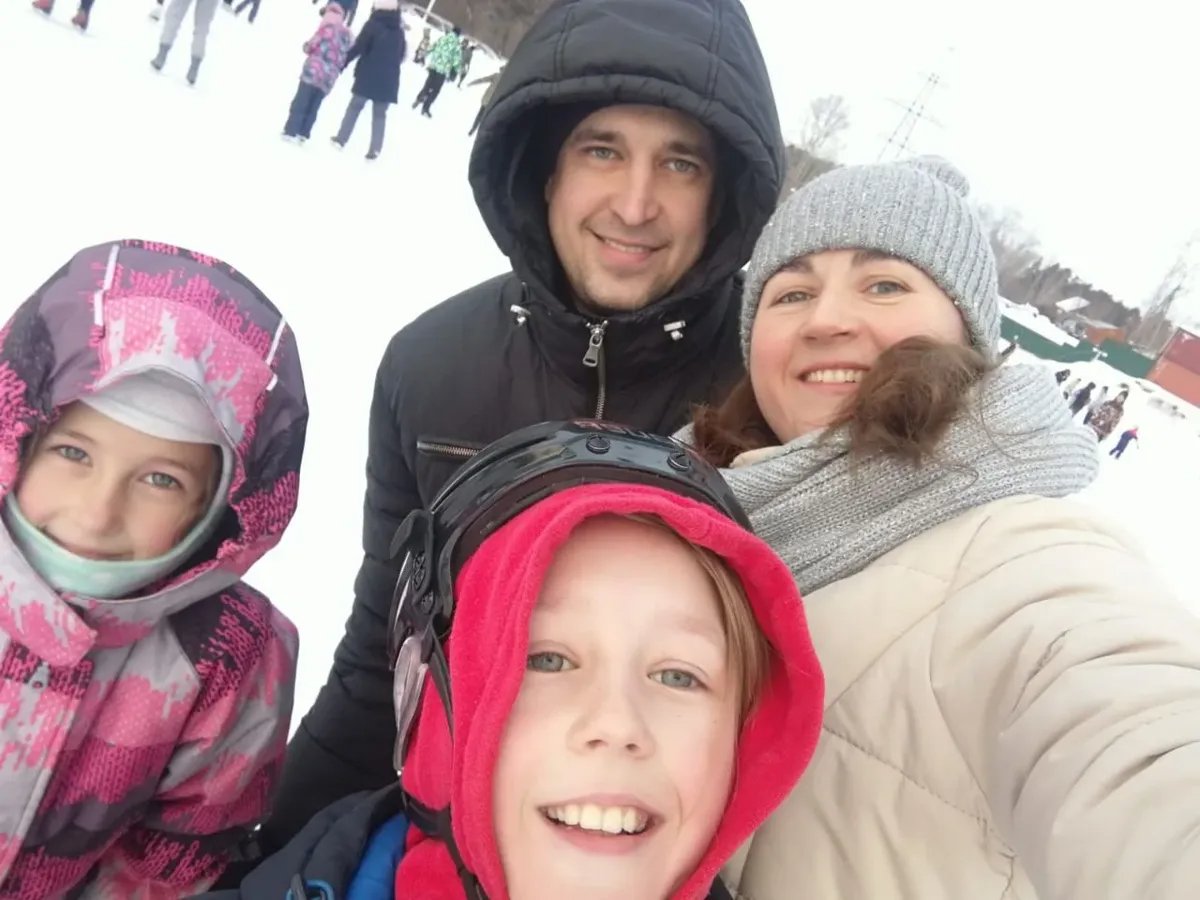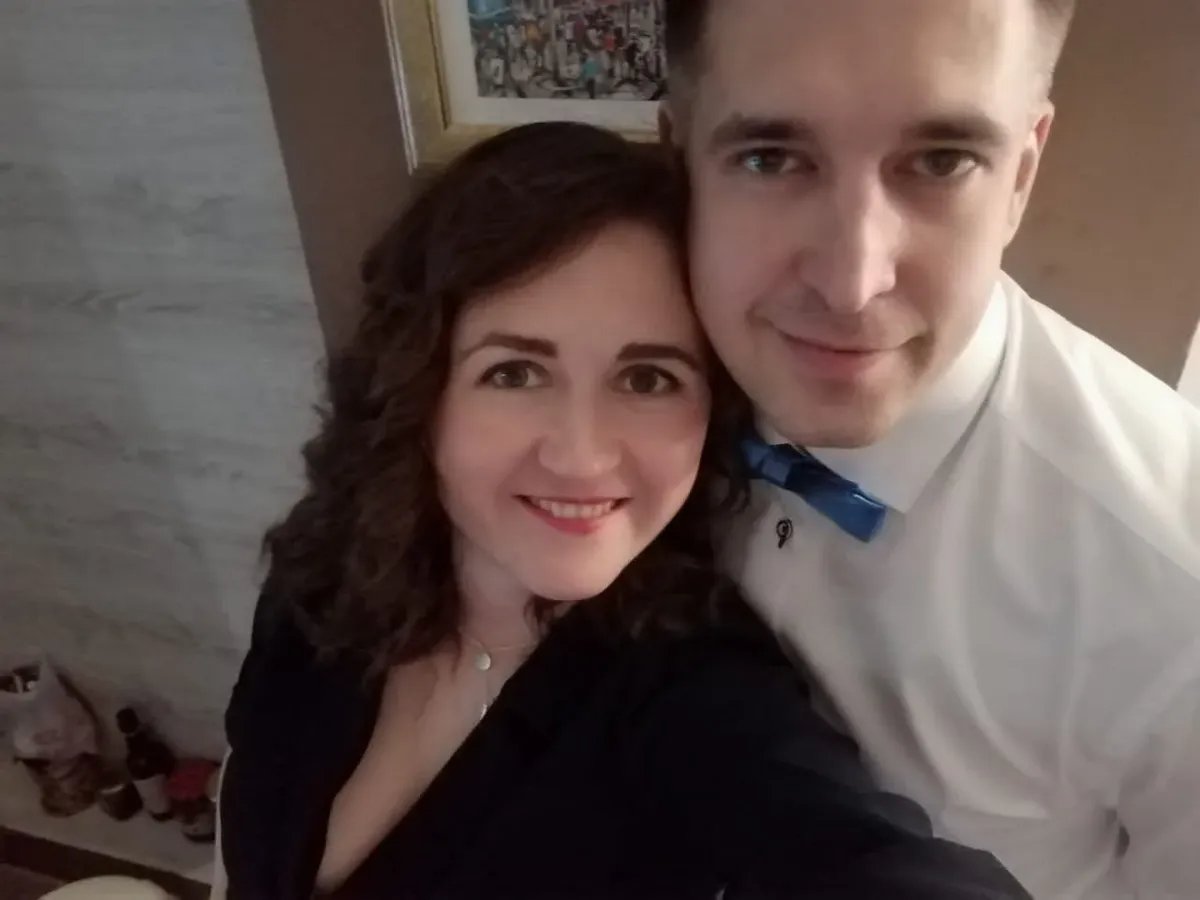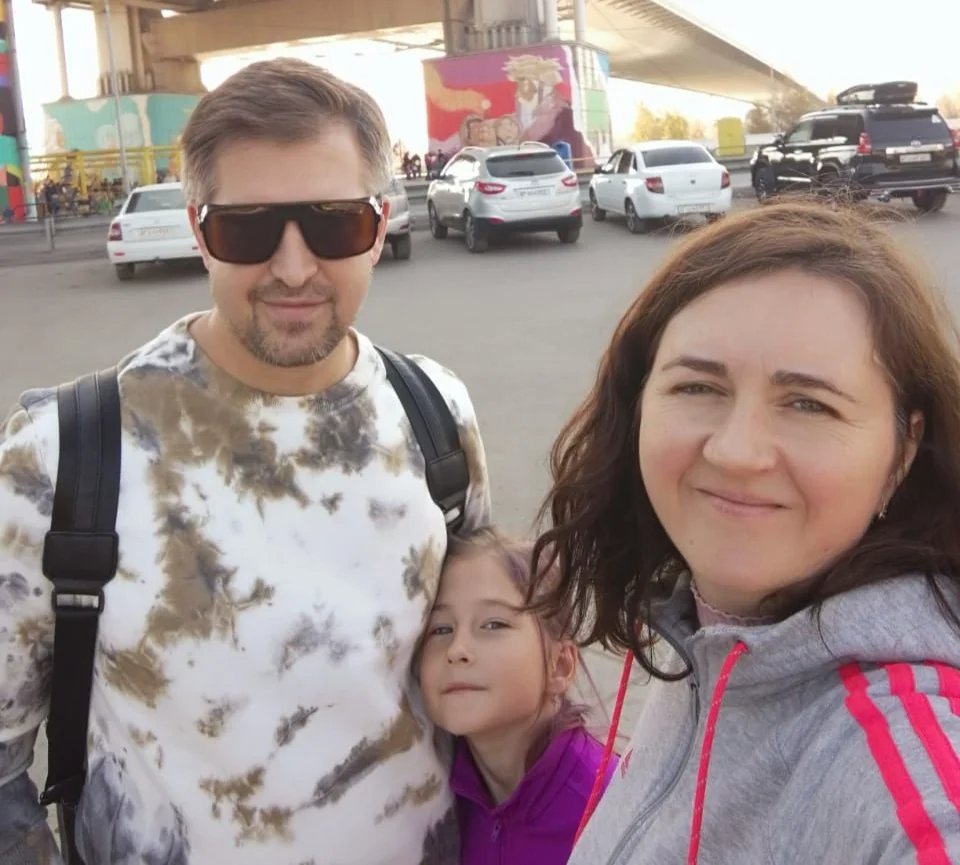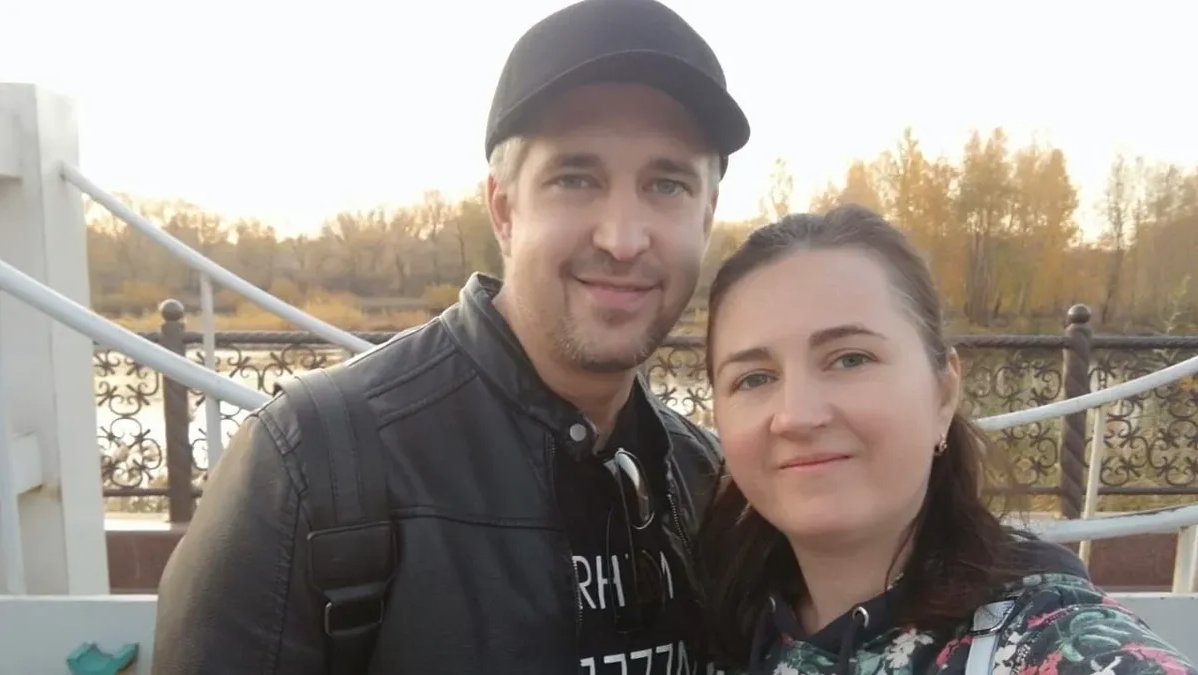Mikhail Zhilin has the same last name as the author of this story, but the two do not share any connection or relation between them.
A court in Astana is considering the case on extradition of Mikhail Zhilin, 36, a major with Russia’s Federal Guard Service (FGS). Zhilin is currently trying to acquire a refugee status in Kazakhstan or at least to be allowed to leave for a different country.
He left Russia on 26 September, five days after the mobilisation had been declared. In Russia, Zhilin is accused of illegal crossing of border (up to two years in prison) and desertion (up to 15 years in prison).
“Mikhail has been serving at the FGS for 18 years,” says his wife Yekaterina. “He is an engineer at the FGS’s Special Communications Service in Novosibirsk, engaged in maintaining the government’s communication. So, his specialty is more of a civil one.”
Yekaterina says her husband has been thinking of leaving his job since 2014, but the daily grind would always stop him from doing that. When the war started, it became impossible for him to simply quit the job.
“The FGS service is de-facto treated same as military service. The latest amendments to the laws leave only three conditions upon which one may leave: reaching the age limit, becoming ineligible for military service, or obtaining criminal record.”
When mobilisation was declared in Russia, Mikhail realised that the time had come. He left Novosibirsk on 26 September with his wife and his two children and headed for the Kazakhstani border.
“We realised from the very start that he would not be allowed to leave Russia. So, I took the kids, and we crossed the border at the Koyanbay checkpoint, and Mikhail took a path through the woods near the locality of Yernazar,” Yekaterina says. “When he was on his way out of the forest, he met some man there, who probably reported my husband to the border guards. Our car was pulled over soon afterwards, and they asked us to show our papers, so this is how they found out Mikhail had not registered at the checkpoint.”
Yekaterina says the couple was planning to reach Astana or Almaty, Kazakhstan’s two biggest cities, to apply for refugee status there.
“Clerks know the refugee status regulations better in large cities rather than elsewhere,” Yekaterina explains.
These plans were, however, cancelled, as Mikhail was detained. He told the border guards of his intention to apply for asylum right away.
“First, they just wanted to deport him by simply forcing him to cross the border back to Russia. Yernazar on the Kazakhstani side is located near several Russian villages across the border, and people often cross the frontier unintentionally while gathering mushrooms or looking for their livestock. This thing is two-sided, and, as far as I’m concerned, the border guards often “exchange” people. They don’t even register them as petty offenders, so the people are simply sent back with no legal effect,” Yekaterina says. “So, before I showed them my husband’s military ID, they were going to treat him as a usual mushroom picker.”

The Zhilins. Photo from the family archive
When the border guards realised that they were having an FGS officer looking for asylum in front of them, they said they could not decide his status by themselves, and summoned their bosses from Semey, a nearby city. So, a lieutenant colonel of the Border Forces arrived to decide Mikhail’s fate, followed by a colonel. They were discussing the matter all night long there, and the border guards provided meals for the couple’s children and allowed them to sleep on their couch.
In the morning, they suggested that Yekaterina took the kids and left the border checkpoint, noting that they wouldn’t release Mikhail for the time being. She took the children and went to Semey where she contacted the Kazakhstan International Bureau for Human Rights. The human rights defenders were eager to help; they soon found out that Mikhail had been brought to the local Border Guards office in Semey.
However, Yekaterina was not allowed to see her husband as it turned out he was charged with illegal crossing of Kazakhstan’s border, which is a criminal offence.
“Kazakhstan launched criminal proceedings on 27 September. They took Mikhail back to the border checkpoint where they were investigating how he crossed the frontier alongside Russian border guards, taking pictures of his footsteps in the forest and all that. They would ask him who was assisting him, and they tried to find his accomplices. My husband said he was really scared back then as nothing kept Kazakhstan’s border guards from simply handing him over to their Russian counterparts. Mikhail’s criminal file has numerous letters that Russia’s and Kazakhstan’s officials exchanged on the matter, although it is against the Refugee Convention: the man is trying to hide from the country where he is in danger. But Russia was aware that he was in Kazakhstan, willing to seek asylum there.”
Mikhail spent three days at the Border Guard Bureau in Semey, residing in the office of the investigator who was in charge of his case. After three days, he was allowed to move to a hotel room upon the condition that two officers would stand watch over him and spend the nights there, too. “They told us that this was due to safety reasons, the Russian side keeping their eye open for him, they said,” Yekaterina explains. Mikhail spent another week at the hotel, allowed to see his family every now and then. He was then released on pledge not to leave town.

Photo from the family archive
The Zhilins contacted the local Department of Coordination of Employment and Social Programmes, an institution in charge of issues related to refugees.
“They first told us they wouldn’t even accept our application for acquiring refugee status as we may not be considered refugees since there is no war in Russia. So, we contacted the Kazakhstan International Bureau for Human Rights again, and they helped us getting our application accepted as there were no reasons why Mikhail could be ineligible for refugee status: he never committed war crimes, or crimes against humanity, or terrorist attacks. It turned out soon thereafter, however, that we used a wrong form for our application, and the clerks didn’t inform us about that. We did not give up and filed new applications, this time filled out correctly. So, eventually, they issued certificates for us that verified our status of individuals seeking asylum in Kazakhstan.”
All this time Mikhail was under investigation, charged with illegal crossing of the Kazakhstani border. His family, human rights defenders, and lawyers applied for his case to be dismissed as the FGS officer arrived in Kazakhstan out of necessity. But the officials would say: until Zhilin is officially recognised as a refugee, his case cannot be dismissed.
On 30 November, nationwide sessions of a commission regarding refugee status were held in Kazakhstan, and all applicants were denied refugee status.
On 2 December, a court issued a six-month suspended sentence for Mikhail, deporting him out of the country. However, he was allowed to leave Kazakhstan on his own, which he attempted to do, buying a plane ticket from Astana to Armenia’s Yerevan.
“Mikhail was detained again at the airport,” Yekaterina says. “This is how we found out Russia had issued an international arrest warrant against him. There were a lot of things going on around our family in Russia, by the way. Our neighbours told us that a general from the military unit where Mikhail is serving visited them, asking if they knew where Mikhail was. Some people also visited the school our children go to, said there was a conscription card for him. Some friends of ours who we crossed the border with visited Russia in October and November. One was questioned about Mikhail for eight hours at the border checkpoint, and another one spent three hours answering the same questions.”

Photo from the family archive
Mikhail is currently in a detention centre; a decision is pending whether he should be extradited to Russia.
“There aren’t many reasons to be optimistic about Mikhail’s situation,” says Denis Dzhivaga of the Kazakhstan International Bureau for Human Rights. “As per the Convention Relating to the Status of Refugees, military hostilities and unwillingness to take part in those is not a condition that would grant asylum to an individual. He has few legal grounds to stay in Kazakhstan, too: our prosecutors and judges consider him a simple deserter, and desertion is also de jure a crime in Kazakhstan. Yes, Kazakhstan’s public officials made their stance towards the events in Ukraine clear numerous times, stressing that warfare is unacceptable. However, such statements have no legal effect, and mass refusals in granting people refugee status prove that. It is more realistic, though, that he might be allowed to leave for a different country, this option has legal precedents. However, this issue is more of a diplomatic nature rather than a legal one.”
Join us in rebuilding Novaya Gazeta Europe
The Russian government has banned independent media. We were forced to leave our country in order to keep doing our job, telling our readers about what is going on Russia, Ukraine and Europe.
We will continue fighting against warfare and dictatorship. We believe that freedom of speech is the most efficient antidote against tyranny. Support us financially to help us fight for peace and freedom.
By clicking the Support button, you agree to the processing of your personal data.
To cancel a regular donation, please write to [email protected]

